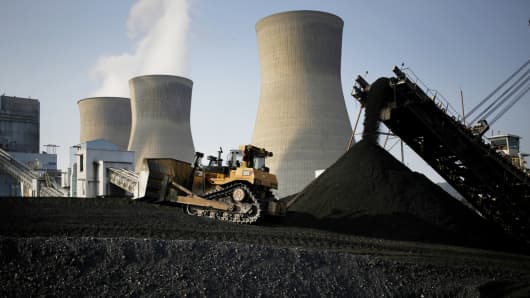Oil isn't the only fossil fuel that's getting cheaper.
The plunge in oil prices is mirrored by the cost of coal, which has been cut in half since 2011 and is expected to keep falling. What's more, the drop in prices is adding pressure to U.S. coal producers.
Coal prices are falling for the same reasons crude is selling for half what it did last summer: There's too much supply at a time when global demand for coal is cooling.
The latest evidence came last week, when China reported an unexpected 20 percent drop in imports, largely from lower volumes of coal oil and other commodities. After a streak of red-hot growth, China's economy is downshifting as Beijing tries to reign in an overheated housing market and a lending boom that's left behind a pile of bad debts.
The world's largest consumer and importer of coal is also restricting imports of coal with high ash and sulfur content as it tackles a serious air pollution problem.
The cooling of China's building boom will also depress demand for coal used to make steel. China produced a record 822 million tons of steel last year—roughly half of global output, according the National Bureau of Statistics. But production was up just one percent, the slowest annual growth rate in 33 years. Analysts say demand is unlikely to rebound this year.



